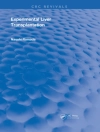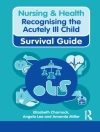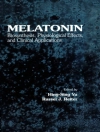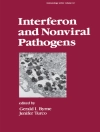The aim of this book is to educate and train practitioners in the safe and professional use of diagnostic ultrasound imaging in the visualization and interpretation of various cerebral conditions not only in neurointensive care, but also in the operating room and, in general, cardiothoracic and neurocritical care settings. It is chiefly intended for anaesthetists and intensivists with a basic knowledge of ultrasound physics, but also for neurosurgeons and neurologists.
All chapters were coordinated by the Editors, with experiences in hands-on courses on Echography and Doppler of the Brain, and prepared by international experts. The book covers from basic principles to estimation of intracranial pressure and cerebral perfusion. The topics cover emergency department and prehospital brain US as part of POCUS and US multiorgan evaluation to general intensive care, neurointensive care and anesthesia, including special populations as pregnant and children and setting as LMIC. Clinical scenarios complete the book.
An innovative and unique guide that equips readers to perform bedside and non-invasive assessments for a range of cerebrovascular diseases.
Tabella dei contenuti
Part I. Technology, views and normal echo anatomy.- Physical principles probe/Technology.- Basic anatomy with TCCD and vessels.- Windows and practical approach: the Mo TOr.- ONSD.- Limitations and pitfalls.- The minimal, intermediate and advanced skills: how to boost your competencies.- Part II. PI, FV, Autoregulation, Cr Cl.- Intracranial pressure.- Brain US for cerebral perfusion.- Part III. Pathology and clinical applications: Emergency department.- Emergency department and prehospital brain US as part of POCUS and US multiorgan evaluation.- Part IV. Liver failure, metabolic coma, sepsis.- Meningitis, stroke.- Cardiac arrest.- ARDS (protective ventilation), ECMO.- Part V. Intracerebral haematomas, midlineshift, hydrocephalus.- SAH Vasospasm.- Brain US in the neurologic settings.- Brain death.- Part VI. Pathology and clinical applications: Applications in neurosurgery.- Applications in neurosurgery.- Applications in low middle income countries.- Part VII. Pathology and clinical applications: specific considerations.- Pediatric population.- Pregnant patients.- Part VIII. Pathology and clinical applications: Intraoperative applications.- Non cardiac surgery.- Cardiac surgery.- Part X. Pathology and clinical applications.- Clinical cases images: clinical scenarios.
Circa l’autore
Chiara Robba, after graduating, began her training in Anaesthesia and Intensive Care in Genoa, Italy. She subsequently worked in the Department of Clinical Neurosciences, Addenbrooke’s Hospital in Cambridge, UK, and completed her Ph D on “Ultrasound-based non-invasive intracranial pressure” under the supervision of Professor Marek Czosnyka. Her main fields of interest are neurosciences and neurocritical care, with a particular focus on brain ultrasound and non-invasive intracranial pressure. She has authored several publications on cerebral haemodynamics in TBI and SAH patients.
Giuseppe Citerio is a Professor of Anaesthesia and Intensive Care at Milano Bicocca University, School of Medicine and Surgery; Director of Anaesthesia and Neurosurgical Intensive Care at San Gerardo Hospital, ASST-Monza; and Director of Anaesthesia and Intensive Care at Desio Hospital, ASST-Monza. After an initial experience at San Raffaele Hospital in Milan, he started Neurointensive and Neuroanesthesia service at San Gerardo Hospital, Monza, in the early 1990s. While at the Neurosurgical Intensive Care Unit, he actively participated in national and international research networks, such as Brain IT and Center TBI. Dr. Citerio has also been involved in numerous research protocols and drug trials, in many cases acting at the principal investigator. His research activities are focused on TBI, subarachnoid haemorrhage, neuroanesthesia, neurointensive care, and brain death/organ donation. Dr. Citerio has participated in the development of international guidelines on the treatment of patients with subarachnoid haemorrhage and neuromonitoring, and has developed more than 50 courses in Italy and Europe on Neurointensive Care topics. In addition to publishing more than 330 indexed articles, he served as an Associate Editor for the journal Intensive Care Medicine from 2007 to 2012, and is now the journal’s Editor-in-Chief.












